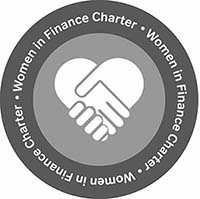
We’re the trade body and industry voice for UK investment managers.
What we do
We champion the investment management industry
The UK investment management industry plays a major role in the economy, helping millions of individuals and families achieve their life goals by helping grow their investments (mainly through workplace pensions). In fact, 75% of UK households use an investment manager’s services (knowingly or unknowingly). The industry also invests, billions of pounds in companies and the financing of transport networks, hospitals, schools and housing projects. The industry supports 126,400 jobs in the UK, including 13,800 in Scotland. It’s the largest industry of its kind in Europe, and the second largest in the world, after America.
Our members range from small, independent UK investment firms to Europe-wide and global players. Collectively, they manage over £8.8 trillion of assets on behalf of their clients in the UK and around the world. That is 11% of the £81 trillion global assets under management. We act as their voice and represent their interests to policymakers and regulators, and help explain to the wider world what the industry does.
We help our member firms become better businesses
We want our members to achieve the best results for their customers, both in the UK and internationally. To do this, we lead learning, training and development initiatives to ensure compliance with the law and industry best practice – all while attracting a more diverse workforce into the industry. We also consult widely with members on issues affecting the industry, such as market trends, new technology, and data use.
How we're structured
We have six key policy divisions, covering every aspect of the investment management industry:
- Policy, Strategy and Innovation
- Investment and Capital Markets
- Stewardship, Risk and Tax
- Market Insight and Fund Sectors
- International and European
- Culture, Talent and Inclusion
These policy teams are supported by four non-policy divisions:
- Corporate Affairs – focusing on external communications and advocacy for the UK, EU and overseas
- Enterprise – covering membership, training and events
- Internal Operations – these include Finance, HR, IT and Facilities functions
- Investment20/20 – the Investment Associatian's talent solution for the industry.
Each of these divisions is led by a director who sits on the IA’s Executive Committee.
Member Information Pack
As a member of the Investment Association we are keen to ensure that you have full oversight of all our various workstreams and activities.
Please click here to view information pack. This will provide you with an introduction to the Investment Association, the benefits of memberships as well as an overview of the various resources and initiatives that you can access and participate in.
Diversity and Inclusion at the IA
Race at Work
We signed the Race at Work Charter in January 2020. The Race at Work Charter, comprises five calls to action to ensure that ethnic minority employees are represented at all levels in an organisation.
As signatories, we commit to:
- Appoint an Executive Sponsor for race
- Karis Stander is our Executive Sponsor
- Capture ethnicity data and publicise progress
- As part of our D&I strategy, we are developing our HR systems and practices to capture this data, which was previously captured on an anonymous basis
- Commit at Board level to zero tolerance of harassment and bullying
- Our Board has committed to zero tolerance
- Make it clear that supporting equality in the workplace is the responsibility of all leaders and managers
- We have staff training in place
- Take action that supports ethnic minority career progression
- We support career progression as part of our D&I strategy.
The IA is a founding partner of the Change the Race Ratio (CTRR), a business led initiative launched by the CBI to increase racial and ethnic participation in British businesses. As signatories of the CTRR, we have committed to set targets to increase the racial and ethnic diversity of our Board and senior leadership team.
As signatories, we commit to:
- Increase racial and ethnic diversity among Board members
- Be transparent on targets and actions
- Increase racial and ethnic diversity in senior leadership
- Create an inclusive culture in which talent from all diversities can thrive.
We will publish progress and targets on the first anniversary of signing in October 2021.
Women in Finance
We signed the Women in Finance Charter in February 2017. Sponsored by HM Treasury, the charter is a pledge for gender balance across financial services.
Our commitment
Currently, our senior management team has a ratio of 54% female to 46% male. We’re committed to keeping female representation above 40% over the next five years, and we’ll report our progress each year. Chris Cummings, CEO, is accountable for gender diversity and inclusion at the IA.
Our progress
When the Investment Association signed up to the Women in Finance Charter in February 2017, its senior management team comprised of 46% women (7 men and 6 women). Since this time, the organisation has grown by 50.8% (from 63 to 94 employees at June 2022). Line management responsibility has been distributed further across the business with this growth and the senior management team now comprises 54% women, which is representative of a workforce which is 66.3% women.
We believe we are on track to meet our Charter target by our deadline.

Pay Gap
We want to create a diverse and inclusive UK investment and savings industry at all levels, including in our own organisation.
Since 2017, UK companies with 250+ employees have to report their gender pay gap for salaries and bonuses. This encourages larger employers to reduce the pay gap in their workforce - often due to a lack of gender diversity - particularly, in the most senior jobs. Employers are not currently required to collect, analyse or publish information on ethnicity pay but many choose to do so as a positive measure to improve workforce progression.
It's important we see first-hand that more diverse organisations are typically more effective. And as the trade body representing the asset management industry, we think it's right we voluntarily publish our own pay gaps, too.
Although we're not obliged to, we think greater transparency is important to achieve change and increase diversity.
You can read our pay gap report here.
Constitution and Annual Report
History of the Investment Association
2018
The IA merges with Investment20/20 to increase diversity by changing perceptions and raising awareness of careers in the investment management industry. Together, they build on Investment20/20’s successful trainee programme and grassroots links with school-leavers and graduates, enrich career entry into the sector at all stages, and equip young professionals with the leadership skills to thrive.
2014
The IMA merges with the Investment Affairs Division of the Association of British Insurers (ABI) to create the Investment Association (IA). The IA now covers the entire range of investment issues for investment managers and clients.
2002
AUTIF merges with the Fund Managers’ Association (FMA) to create the Investment Management Association (IMA). This reflects the overlap in membership and interests and the industry’s growth. For the first time, one trade association represents the whole investment management industry, creating a more powerful voice in the UK, Europe and worldwide.
1993
The UTA rebrands as the Association of Unit Trusts and Investment Funds (AUTIF). Its objectives, to:
- make representations to the UK government on legislative, regulatory and tax matters
- liaise with UK and European regulators and other relevant organisations
- increase public awareness and understanding of investment funds
- improve training standards in the industry
- educate school children about personal finance
- offer members valuable information and help
- provide information to external parties interested in the industry.
1976
The organisation is renamed the Unit Trust Association (UTA). Its objectives, to:
- uphold standards of unit trust practice
- protect the interests of unit holders
- maintain the good name of the industry
- represent the industry to government departments and other authorities
- work with other organisations on investment protection matters.
1959
On 13 October, several organisations merge to protect and promote the interests of investors and investment managers. This was called the Association of Unit Trust Managers, formed to represent the interests of unit trusts and mutual funds.
Awards Winner
- City and Financial Campaign of The Year: PR Week Awards, IA Corporate Affairs Team
- Contribution to Diversity: Investment Week Women in Investment Awards, Investment20/20
- Diversity Initiative of the Year: Financial News Asset Management Awards, Investment20/20
- Diversity Marketing and Recruitment Campaign of the Year: Financial Adviser Diversity in Finance Awards, Investment20/20
- In House Team of the Year: PRCA Awards, IA Corporate Affairs Team
- Marketing and Effectiveness Award: For Most Effective Content Marketing, Financial Services Forum Awards, Investment20/20

Highly Commended:
- Campaign Innovation: Investment Week Marketing and Innovation Awards, Investment20/20
- Championing LGBT Inclusion: Financial Adviser Diversity in Finance Award, IA’s Senior Government Affairs
- Inclusion, Outreach and Diversity Award: City A.M. Awards, Investment Association
- In House Team of the Year: PR Week Awards, IA Corporate Affairs Team
- Marketing and Effectiveness Award: For Best Use of Limited Budget, Financial Services Forum Awards, Investment20/20






